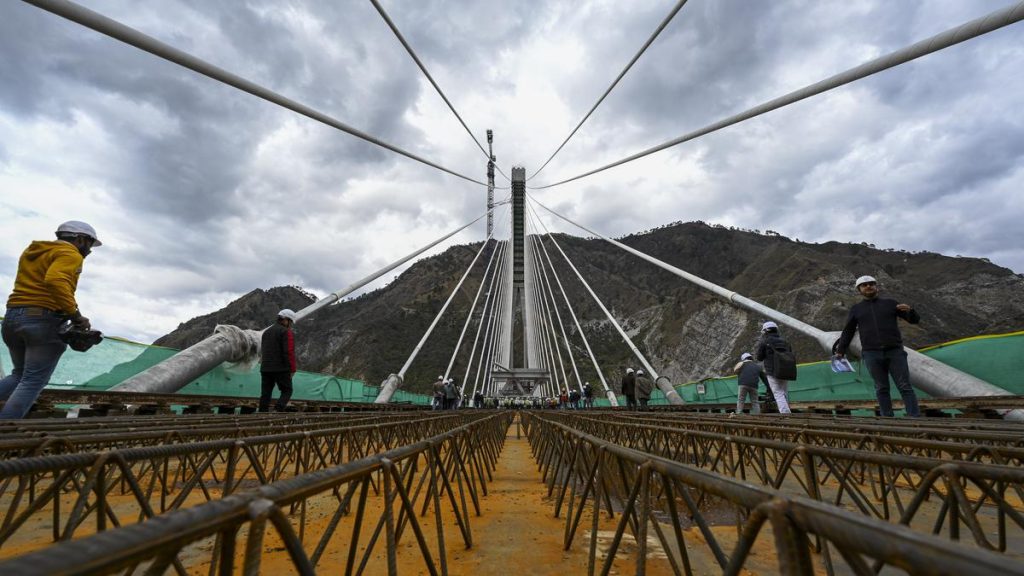Context:
Recently, TheIndian Railways completed the Anjikhad Bridge, the country’s first cable-stayed rail bridge.
About Bridge

- Anjikhad is the smaller of the two major bridges on the line with a central cable-stayed span of 290 meters. The largest – over the river Chenab – will be the highest arch railway bridge ever built at 1,053 feet (321 meters).
- It is located in Reasi district, Jammu and Kashmir, and it is part of the Udampur-Srinagar-Baramulla Rail Link (USBRL) Project.
- It will connect Katra and Reasi and will enhance connectivity between the Jammu region and the Kashmir Valley.
- It is constructed over the Anji River, a tributary of the Chenab River.
- It is constructed in the challenging Himalayan terrain, and the bridge overcame complex geological conditions, including seismic activity and fragile rock formations.
- The Indian Railways collaborated with IIT Roorkee and IIT Delhi for detailed site-specific investigations aimed at ensuring the stability and safety of the bridge.
Features
- The bridge comprises four key sections: a 120-meter approach viaduct on the Reasi side, a 38-meter approach bridge on the Katra side, a 473.25-meter cable-stayed segment spanning the valley, and a 94.25-meter central embankment connecting the main structure to the viaduct.
- The bridge’s construction involved 96 cables ranging from 82 to 295 meters in length.
- A hybrid foundation was used to stabilize the slopes supporting the main pylon.
- Advanced construction methods, including DOKA Jump form shuttering and pump concreting, boosted efficiency and safety.
- It will facilitate trains traveling at speeds of up to 100 km/hr.

